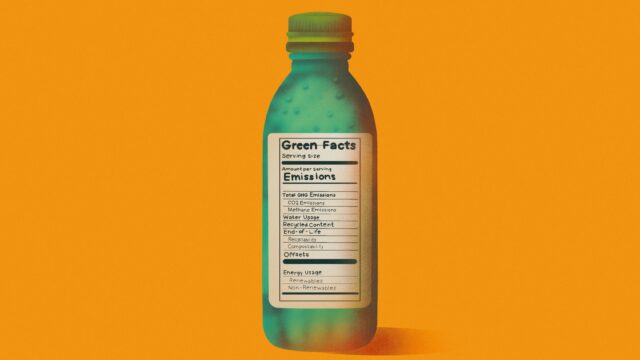Earlier this year, Uber Eats and Visa teamed up on a new program designed to support small and medium-sized restaurants in their transition to more sustainable packaging solutions.
Together, the two companies have committed $1 million that will be accessible to 100 businesses in the form of credits to purchase eco-friendly packaging for businesses in New York, Los Angeles, Paris, Madrid and London.
Marketers from Visa and Uber joined Adweek’s Commerceweek summit to chat about their methods and takeaways from this sustainability-focused campaign.
Breaking down the barriers
A 2022 study by the National Restaurant Association found that while transitioning to sustainable packaging is a priority for many restaurants, the cost and continued supply chain issues faced by the hospitality industry make it difficult. As a logistics company and financial firm, Uber Eats and Visa saw a way to help these businesses embrace greener operations.
“For us, it’s super important to provide the resources that businesses need to keep moving forward in the way their consumers want them to,” said Marissa Hart, Uber’s head of EMEA and payments partnership marketing. “The idea is they can use those credits to buy sustainable packaging to help kickstart their efforts.”
However, the initiative is not solely about promoting sustainability; it’s also a reflection of Visa’s commitment to supporting small businesses.
“Small businesses are anything but small to Visa,” said Madeline Davenport, director of brand strategy and operations at Visa. “They actually represent over 90% of business in the world and over half of employment globally. As a company, we’re constantly thinking about how we can help these everyday people running these firms around the world and work with people who have the boots and ears on the ground of what they need.
“The partnership with Uber Eats has been fantastic because they know what the restaurants and the communities we’re serving need on a daily basis—especially on the heels of the pandemic.”
Meeting the green demand
The panelists agreed that as consumers become more environmentally conscious, their purchasing habits are gradually reflecting this shift.
“On an ongoing basis, sustainability is becoming a consideration set for consumers as they think about where and who to shop with,” Hart said. “We know that consumer needs are the most important things to a small business. By helping them move to more sustainable packaging options, we hope it will help with their consumer needs as well.”


